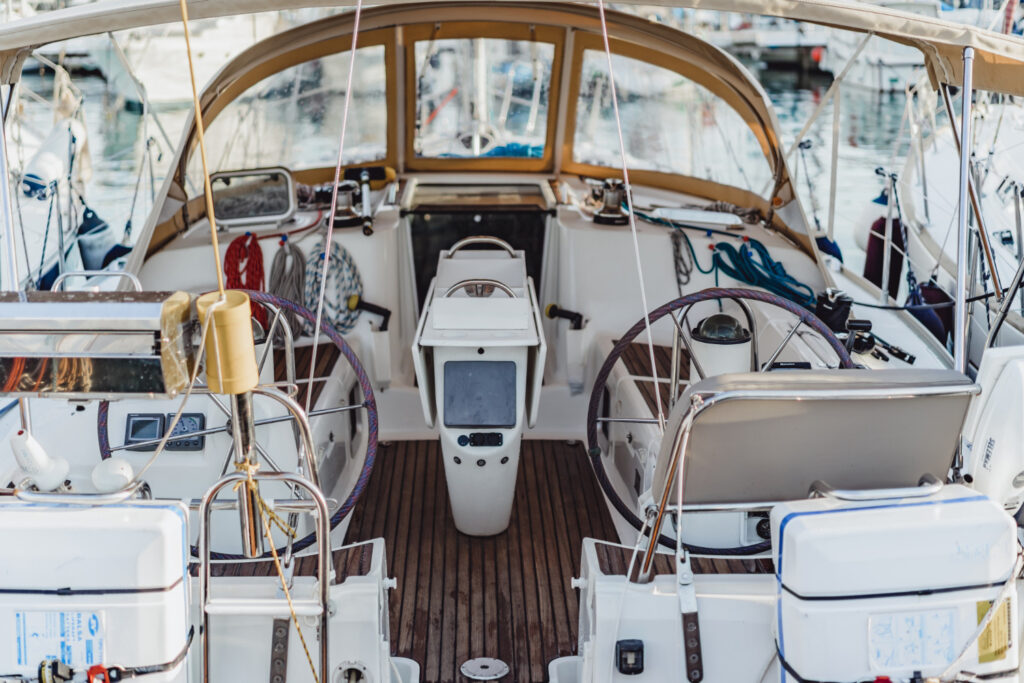Storing boats requires great care, particularly when it comes to maintaining their electrical systems. Without regular attention, these critical components can degrade over time, leading to problems that might affect your boat’s safety and performance. In Apollo Beach, where boating is a popular pastime, understanding how to troubleshoot and prevent electrical issues in stored boats is essential. This overview focuses on recognizing common electrical issues and taking practical steps to ensure your boat is ready for the water when you are.
Ignoring electrical maintenance can lead to headaches and higher costs down the road. It’s not uncommon to encounter issues like drained batteries, corrosion, and faulty wiring after a lengthy storage period. Resolving these problems requires not just an understanding of what might be going wrong, but also how to diagnose and fix these issues effectively. By knowing the signs of electrical trouble, you can take action and protect your investment.
Common Electrical Issues in Stored Boats
Boat owners often confront several electrical issues during storage. Addressing these problems in their early stages can save you from unexpected breakdowns when you decide to head back on the water.
– Battery Drain: Boat batteries can lose charge over time, particularly if not properly disconnected or maintained. This results in a dead battery when you try to start your boat after storage.
– Corrosion and Moisture Damage: Boats are exposed to water elements, which can cause corrosion on electrical contacts and wires if not adequately protected. Moisture buildup is a common concern, especially in Apollo Beach, where humidity levels fluctuate.
– Faulty Wiring and Connections: Loose or damaged wiring can occur if electrical connections are not secured or if materials degrade over the storage period. This can cause interruptions in your boat’s electrical functions.
Diagnosing Electrical Problems
When dealing with electrical issues, it’s best to begin with a thorough inspection.
1. Visual Inspection Techniques: Checking your boat’s electrical components for visible signs of wear and tear is a straightforward step. Look for corrosion, frayed wires, and loose connections.
2. Using Multimeters and Diagnostic Tools: A multimeter can help diagnose voltage irregularities, helping to confirm whether a battery or circuit has a problem.
3. Identifying Signs of Wear and Tear: Consistent signs such as discoloration, unusual smells, or heat emanating from electrical components often indicate an underlying issue needing attention.
While some issues can be quickly identified through visual checks and simple tools, others may require the expertise of our professionals to diagnose and resolve. Addressing these matters promptly ensures that your time on the water remains enjoyable and trouble-free.
Preventative Measures for Electrical Systems
Once you identify common issues, taking preventative steps can help safeguard your boat’s electrical system during storage periods. Proper maintenance practices not only extend the lifespan of the components but also reduce the likelihood of encountering problems when you’re eager to hit the water.
Regular cleaning and maintenance are fundamental. Consider these practices to keep your electrical system in top shape:
– Ensure all components are free from dirt and grime. Salt and moisture can accumulate and cause damage over time.
– Use protective sprays designed for marine environments. These create a barrier against corrosion.
Disconnecting batteries before storage is another wise step. Not only does this prevent accelerating battery drain, but it also ensures safety and reduces the risk of short circuits. Storing batteries in a cool, dry place prolongs their life and readiness.
Investing in quality protective covers and insulating materials is also beneficial. Covers prevent exposure to the elements, while insulation ensures that temperature fluctuations do not impact the electrical systems adversely.
When to Consult Our Professionals
There are times when you might encounter issues that are beyond basic troubleshooting. Recognizing these complex issues early can save time and prevent further damage. If you’re uncertain or if a problem persists, seeking the help of professionals is advisable.
Our professionals can inspect your boat’s electrical system thoroughly, diagnosing problems that may not be visibly apparent. Their trained eyes can pinpoint hidden issues that could grow into major concerns.
– They provide detailed assessments and recommend appropriate solutions.
– Routine professional inspections can uncover and address potential problems before they worsen.
Professional services ensure your boat’s reliability and safety, offering peace of mind that the electrical systems are functioning properly. In Apollo Beach, using professional services periodically can help maintain the enjoyment and utility of your boat.
Safeguard Your Boat’s Electrical Systems Today
Maintaining your boat’s electrical systems is key to a smooth and enjoyable experience on the water. Regular checks and professional assistance go a long way in ensuring your boat stays safe, efficient, and ready for any adventure.
As you plan for future outings, proactive steps in maintenance can make a significant difference. Being prepared means understanding the various components involved and knowing when to address them, preventing headaches later on.
With careful attention to detail and the right preventative measures, your boating experience will be seamless and enjoyable, preserving both your investment and your time on the water.
Keep your boat in top shape by scheduling regular professional maintenance and addressing potential issues before they turn into costly problems. If you need guidance on protecting your boat’s electrical systems, consider exploring boat storage in Apollo Beach to see how you can keep your craft safe and ready for your next outing. Shell Point Marina believes prevention is the best practice, so for a quick estimate or to book a service visit, please contact us today.

